Commission for Global Dimensions of Student Development
Monday, 10 June 2019 - 7:45am
By Mitchell R Foster
As a Coordinator for Residence Education (CRE) for the international residence hall at the University of Arkansas, I came to assume a position that has an added responsibility towards international education and inclusion. Global Series is a programmatic initiative of Holcombe Hall that aims to feature various countries and cultures by means of an informative presentation and food tasting. When I started my role as a CRE for Holcombe Hall, the program was already in place and has been happening twice a month during the previous academic year. However, there were no written and established educational properties. Together with my Graduate Assistant (GA), I developed the learning objectives, learning outcomes and professional development value for the presenters (see reference below).
Each piece of the series is a presentation on a country and a culture. An international student originating from the featured country or a domestic student who has had study abroad experience, can present. A pair or a group of international and domestic students presenting on the same country is ideal. This configuration does not only give a richness of information from unique lenses with shared experience but also exhibits the harmonious dynamic that international relationships offer. The same presenters also decide which delicacy they want to prepare and share from the country being featured.
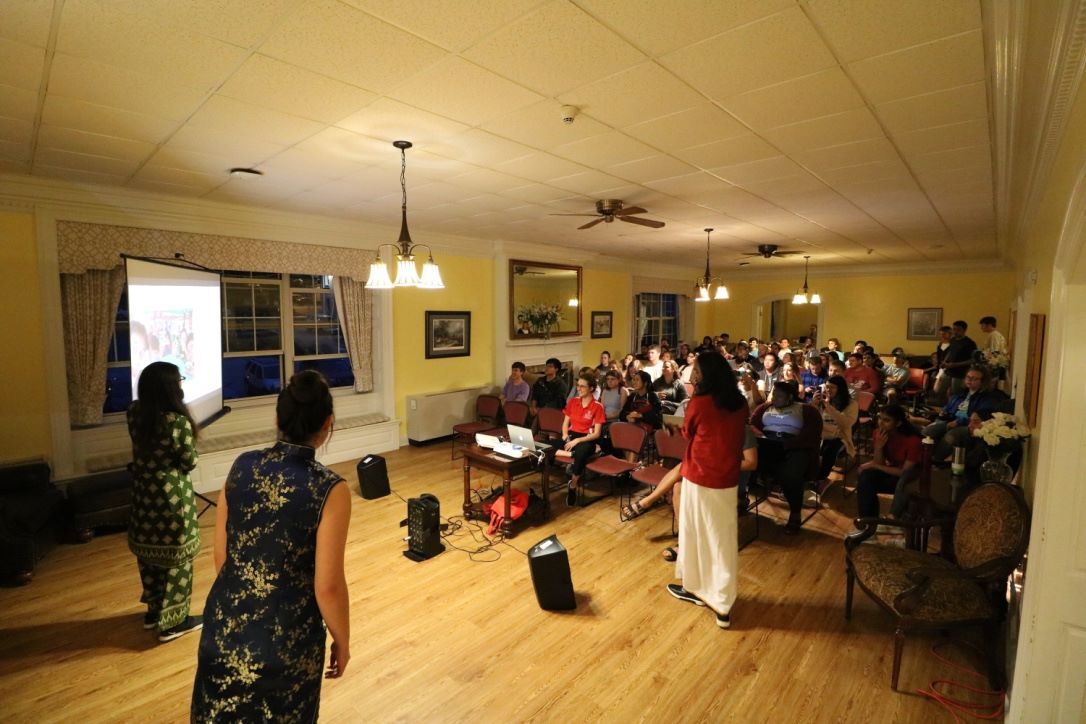
Picture: Global Series: Malaysia Presenter (Spring 2019)
Multiple elements are involved in every feature of the series. Each program includes a photo booth with a backdrop composed of pieces from the country being presented. This could be anything from the country’s flag, notable infrastructure or cultural detail. If available, an exhibit table with items from the featured country is placed by the entrance of the venue, which is the Holcombe Living Room converted into a presenter’s hall. After the presentation, the program’s emcee invites the attendees to the food prepared by the presenters. The room is then packed up to make space for some dancing and celebration while playing culturally appropriate music from the featured country.
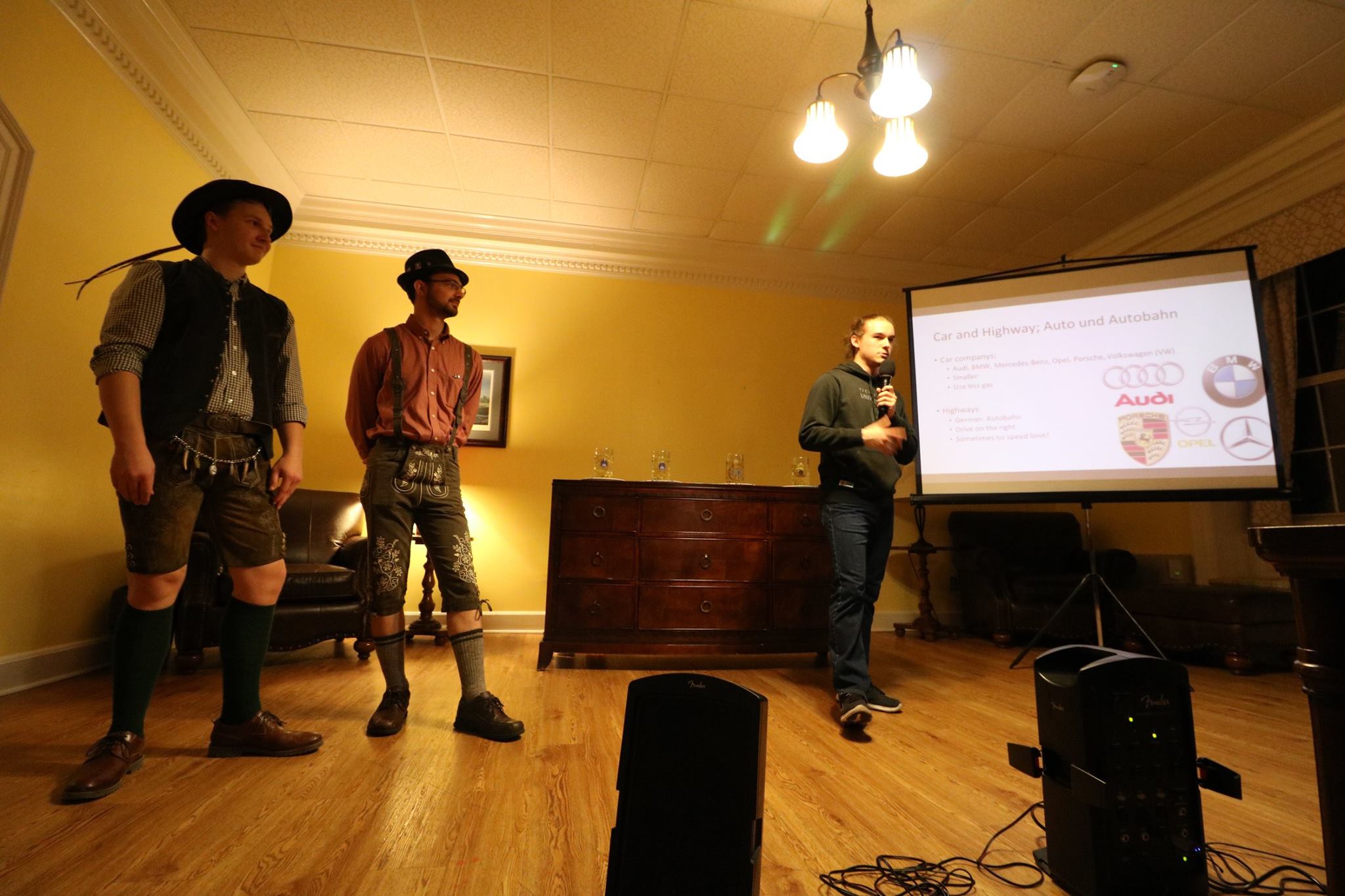
Picture: Global Series: Germany Presenter (Spring 2019)
Global Series features five to seven countries a semester depending on breaks and holidays. The semester begins with an interest session inviting students who have a desire to participate and that way fill the available slots for the semester. Ideally, two different countries are featured every month. We allot two weeks for logistics which starts from the conceptualizing stage and presentation development to exhibit item gathering, photo booth creation and food prep. An initial meeting with the presenters is called and from there, tasks are assigned to each presenter to make their program possible and successful.
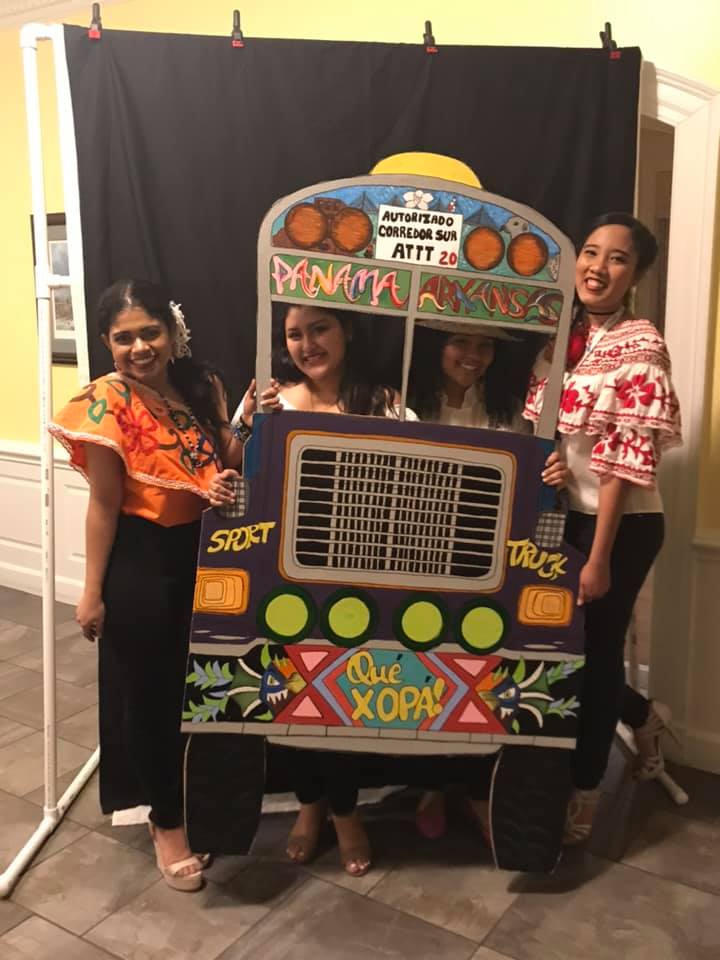
Picture: Global Series: Panama Photobooth (Spring 2019)
While I was developing the learning outcomes of Global Series, I included a plan for an end-of-the-year recognition for all the presenters. We set that plan into motion at the end of the Spring 2019 semester. An invitation went out to all student presenters, who were awarded with certificates in a small ceremony that included hors d'oeuvres. They each were also presented with a Global Series pin to commemorate their participation and contribution. The spirits were high during the recognition night and it received very positive feedback from the students.
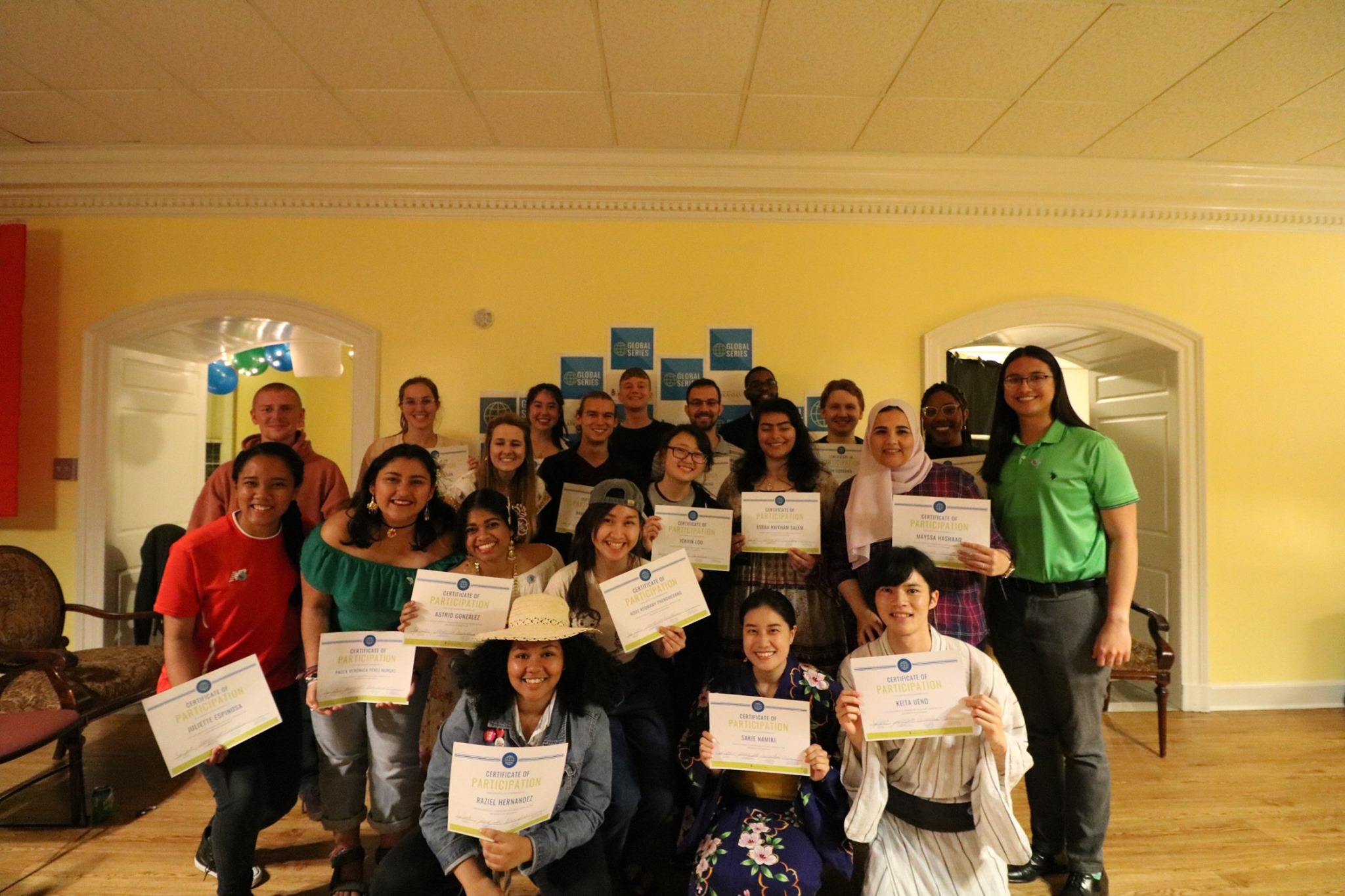
Picture: End of the Year Recognition Ceremony
Creating educational meaning for every programmatic experience is a task that I assumed when I embarked on my current professional journey. In my year working for the students of Holcombe Hall I learned that there is a correlation between diversity and inclusion and fostering international awareness and relationships. This academic year’s Global Series showed a 40% growth in attendance.
Holcombe Hall’s Global Series at the University of Arkansas
Learning Objectives:
- Increased self-awareness about home country in respect with host country through research
- Improved self-confidence about cultural and geographical origins to articulately share prepared presentation during night of the program
- Create new connections with campus community through networking with student audience and university professionals
Learning Outcomes:
- Present confidently about one’s culture and lived experience in a country outside of the USA
- Ability to distinguish differences and similarities between home and host cultures
- Connect with and engage the audience through presentation
- Confidently answer audience questions and hold conversations after presentation
Professional Development:
- Improved public speaking and research skills
- Build a professional network
- Think critically about how to connect with multicultural audience
Bio of Mitchell Foster
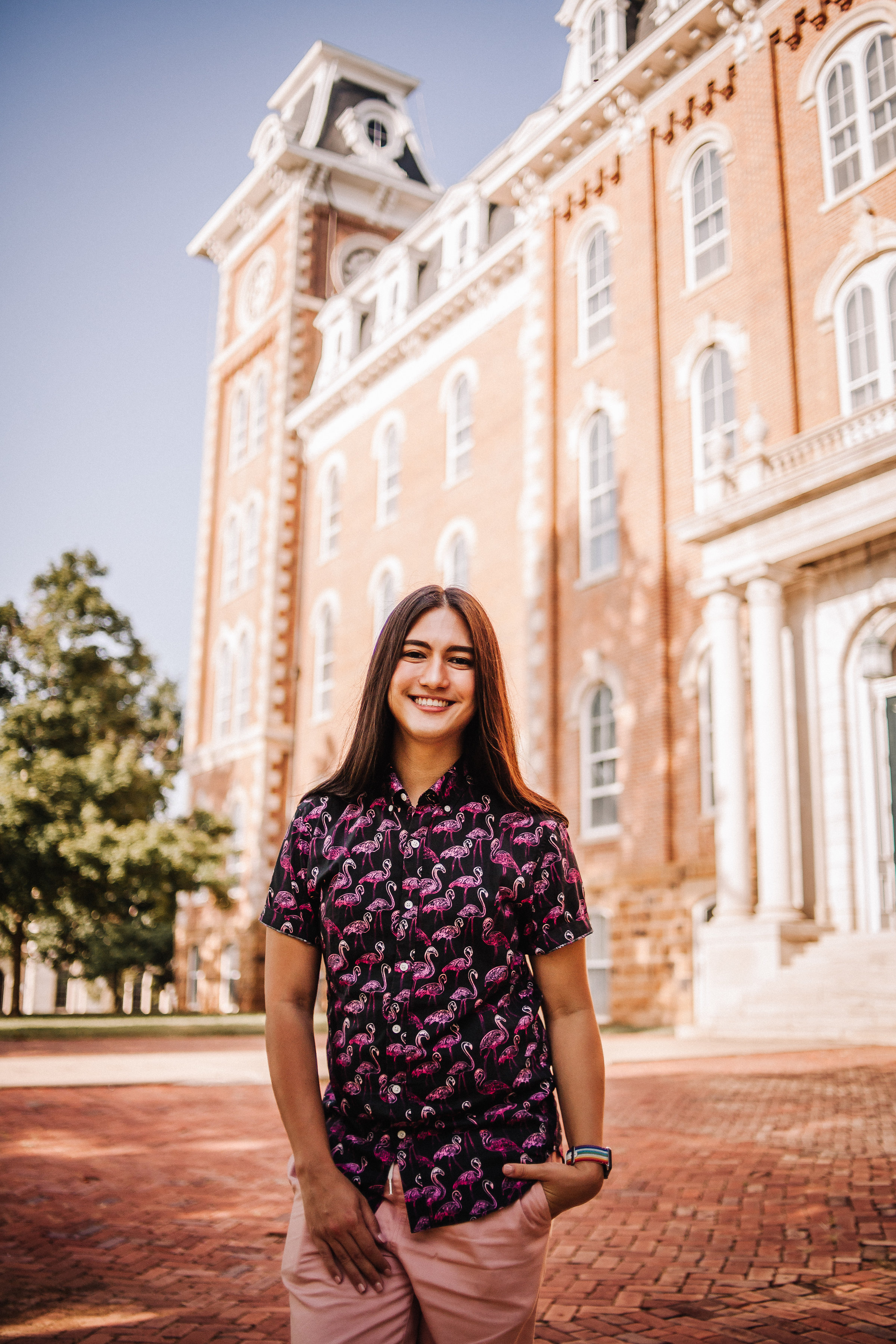
Mitchell Foster is currently working as a Coordinator for Residence Education for University Housing at the University of Arkansas. They supervise Holcombe and Futrall Halls, 15 Resident Assistants and 1 Graduate Assistant. They are a new professional who graduated with a Master’s in Public Administration and a certificate in Sexual Diversity Studies from California State University, Chico in May 2018.

